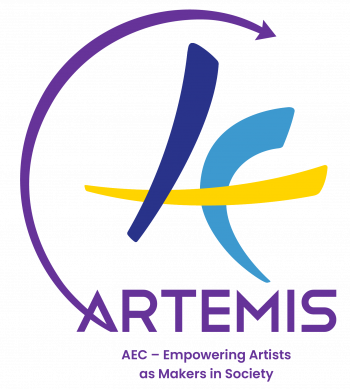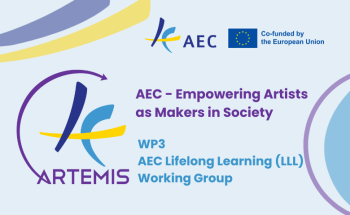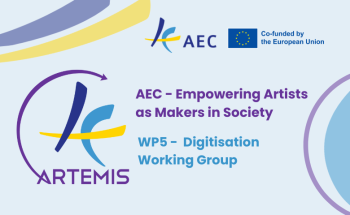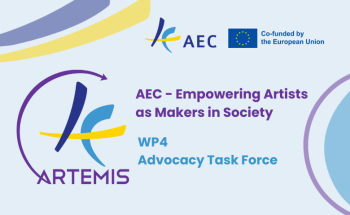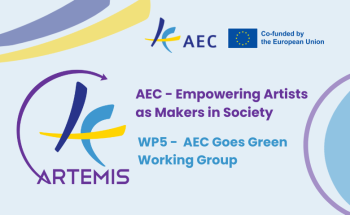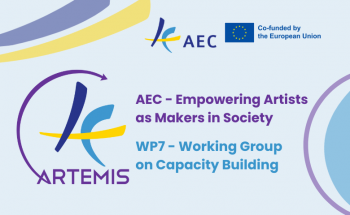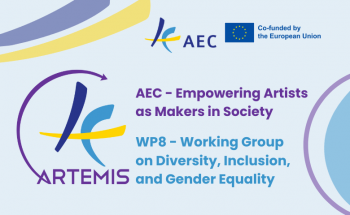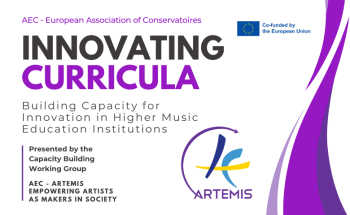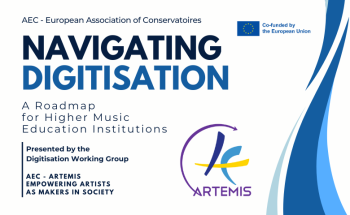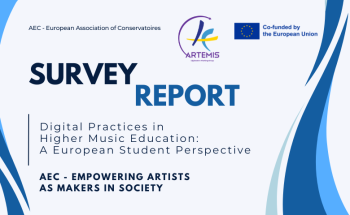WP8. Fostering diversity, inclusion and gender equality
Objectives Work Package 8
⇒ Shaping and implementing fair, inclusive, diverse and gender equal frameworks in HMEIs
Work Package 8 (WP8) addresses the need to help HMEIs accommodate a plurality of backgrounds, cultures, access capabilities, artistic paradigms and aspirations. Given the specificities of the HME sector, such as high-level entry requirements to access it and 1-to-1 lessons resulting in a strong relationship between student and mentor, exploring issues such as gender, ethnicity, disabilities, and socio-economic backgrounds as well as power relations is crucial for the sustainability of the sector. AEC will take care of the topic’s complexity in all its multi-faceted aspects, i.e: promoting cultural and educational offers that meet the diversity of individual needs and preferences, but also the diversity of music genres and traditions; fostering inclusivity towards people with different cultural, social and physical requirements, needs and possibilities, but also towards differing cultures and traditions in HMEIs on an equal footing; facilitating gender equality through targeted measures, such as providing mentoring programs for young female artists, but also through measures addressing equality issues related to origin, ethnicity, cultural background, etc.
- Enabling HMEIs to enhance diversity, inclusion and equality within their student and staff population
The Diversity, Inclusion & Gender Equality (DIGE) WG, building on the work completed in the AEC-SMS project (2017-2021) by the WG on Diversity, Identity and Inclusiveness will:
- Develop guidelines to assist HMEIs in defining strategies and developing policies to enhance diversity, gender equality and inclusion, including of socially and culturally marginalised groups and of people with disabilities
- Provide workshops to specific institutions in order to assist them further in implementing these policies and strategies.
Within the DIGE WG, 2 individuals will form the Gender Equality & Non-Discrimination Mainstreaming Task Force. They will bring specific expertise regarding gender equality to the WG and will at the same time be responsible for promoting gender equality and non-discrimination mainstreaming within the project itself.
- Empowering HMEIs to deal with power relation issues
The DIGE WG will:
- Carefully follow the results of the assemblies held during the PRIhME project (Power Relations in higher Music Education, 2020-2023), i.e. an academic publication containing best practices and findings, as well as standards, resolutions and recommendations on how to deal with power relations within HMEIs
- Encourage institutions to implement the PRIhME standards and to set up a reliable system to prevent power relations, deal with them and monitor them in a transparent and confidential way.
- Opening up HMEIs to diverse traditions and genres
The DIGE WG will explore:
- How the mutual understanding and respect of cultures can be improved in HMEIs and the intercultural competences of students and teaching staff strengthened
- How diversity can be enhanced by making curricula more flexible and tailored to the needs of individual students
- How the institutional framework can enhance different musical traditions beyond Western classical music to develop and live their own cultures of teaching, assessing and performing within the HMEIs.
- Fostering access and diversity of educational offers in music
The DIGE WG members will bring their expertise to the SCHEME group in order to explore together which long-term opportunities could be developed to facilitate the access of less advantaged people to music education.
- Supporting emerging female artists by contributing to 2 mentorship programmes
The AEC Office and the DIGE WG will identify in the AEC network and bring together:
- 6 mentors (established female music creators) and 6 mentees to contribute to a mentorship programme for young female music authors co-organised with the European Composer & Songwriter Alliance (ECSA).
- 3 mentees to contribute to a mentorship programme with successful female artists as role models with the European Jazz Network (EJN).

